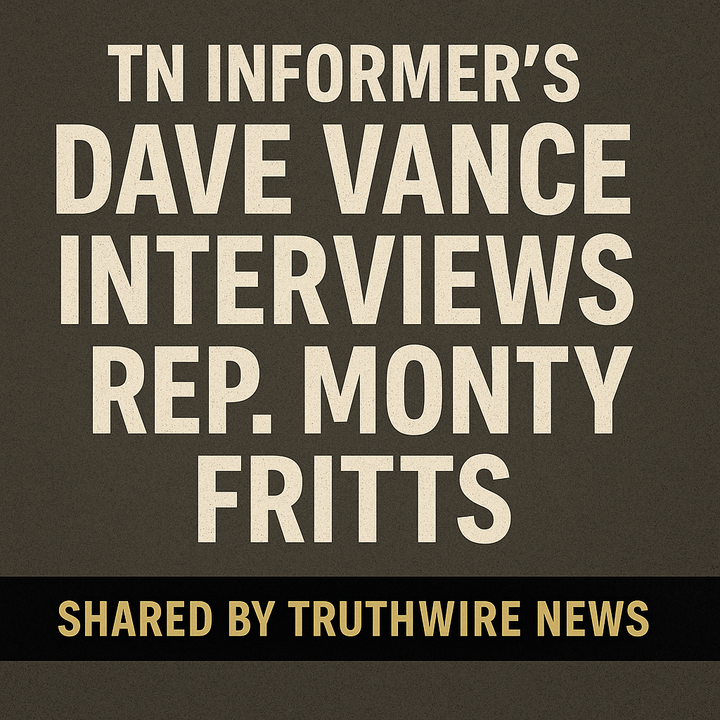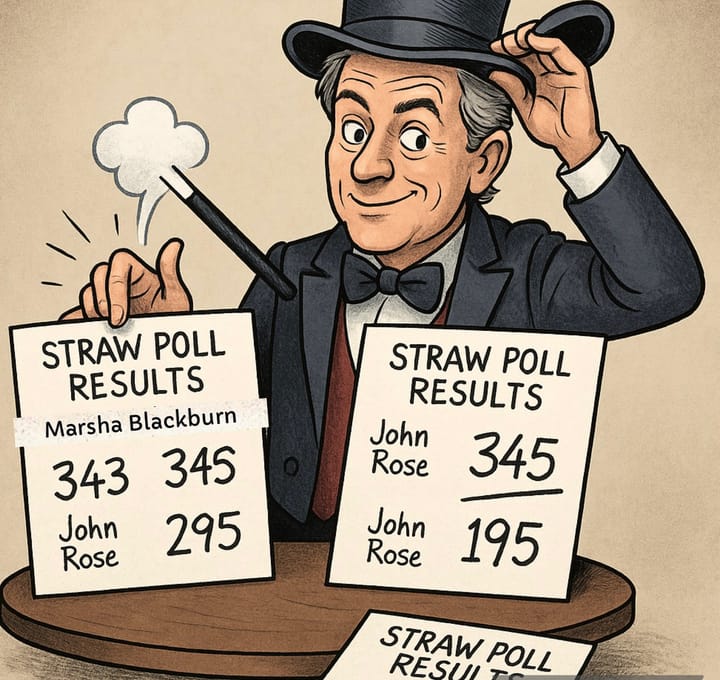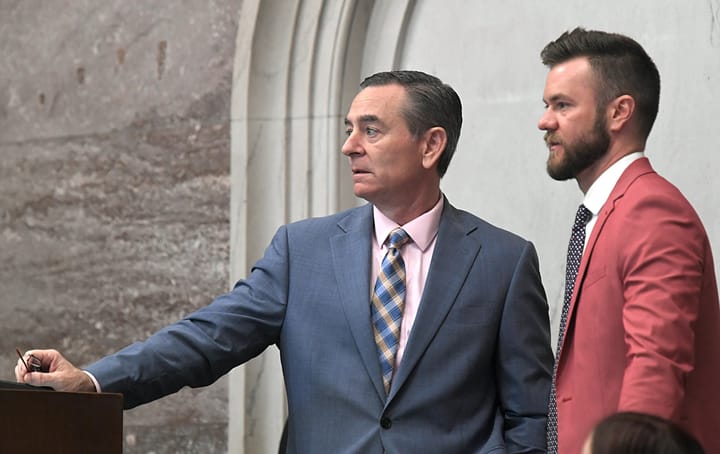Tennessee Politics
"You Might Be Right"—But Few Listened the First Time Around
"You Might Be Right" feels like a relic of pre-Trump politics, with Haslam and Bredesen hosting establishment figures who echo stale ideas. Civility without substance won't solve today's polarized realities.

Apparently, You Might Be Right isn’t new. Tennessee’s former governors Bill Haslam and Phil Bredesen are wrapping up their second season of a podcast almost no one knew existed. Launched under the auspices of the Howard H. Baker Jr. School of Public Policy at the University of Tennessee, the show aims to bridge the political divide by fostering "civil conversations." If the guest list is any indication, however, the only bridge being built is between two sides of the same establishment coin—one that Donald Trump and the MAGA movement exposed as irrelevant to today’s political realities.
Haslam and Bredesen: Bipartisanship’s Blandest Duo
On paper, Republican Haslam and Democrat Bredesen seem like an intriguing pair. Haslam, 65, was Tennessee’s governor from 2011 to 2019 and previously Knoxville’s mayor. Bredesen, now 79, served as governor from 2003 to 2011 and mayor of Nashville before that. But in practice, these two represent the quintessential establishment politics that MAGA voters on the right and progressives on the left alike have grown tired of.
Haslam’s Republican credentials are textbook Chamber of Commerce—think big business, small ideas. Meanwhile, Bredesen’s tenure as a “moderate” Democrat was so unmemorable that even his own party barely backed him when he ran for Senate in 2018. Together, they personify the political middle that nobody asked for anymore, especially in the wake of Trump’s rise.
Guests to Make You Snooze—Or Rage
Early episodes featured the kind of guests that make You Might Be Right feel more like a neoconservative reunion than a genuine attempt to explore diverse perspectives. Neocon and anti-Trump favorite David French, corporate apologist Paul Ryan, and former Senator Lamar Alexander round out the Republican side. To add to the "balanced" blend of outdated ideas, they brought in Al Gore, Arne Duncan, and a parade of other Never Trumpers who could be generously described as tone-deaf to the current political landscape.
If Haslam and Bredesen are trying to highlight “differing views,” why does every guest feel like they’re reading from the same stale playbook of pre-Trump conventional wisdom? The only “difference” here seems to be whether the speaker prefers their globalist policies with a GOP or Democrat sticker on the label.
Avoiding the "Crazy Corners"—But Missing the Point
Haslam and Bredesen claim they’re creating a space for thoughtful conversation by avoiding the “crazy corners” of politics. Translation? Don’t expect any voices from the MAGA movement or progressive populists—just a safe space for polite establishment figures to agree on how much they dislike disruption.
As Haslam put it: “I thought if we could have some environment where people could hear the other side thoughtfully presented, then maybe some of the polarization would start diminishing.” Meanwhile, Bredesen lamented that political debates have become “character attacks” instead of genuine discussions.
Here’s the problem: people aren’t polarized because they don’t understand each other. They’re polarized because the establishment Haslam and Bredesen represent failed them on both economic and cultural fronts. A podcast featuring the same tired voices that got us into this mess is unlikely to inspire the change they claim to seek.
The Howard Baker Legacy—Misapplied
The podcast takes its name from a saying attributed to Howard Baker Jr., the late Republican senator from Tennessee: “You might be right.” Baker’s sentiment of bipartisan cooperation worked in an era when the two parties represented truly different visions for America. But applying it in 2024 feels like a hollow exercise, especially when the hosts and their guests are practically interchangeable regardless of their nominal political affiliation.
What’s more, the podcast’s connection to the Howard H. Baker Jr. School of Public Policy underscores its institutional roots—a product of academia and elite politicking rather than grassroots engagement.
What’s the Endgame?
Haslam and Bredesen’s insistence that they’re fostering meaningful dialogue is laughable when their guest list consists almost entirely of establishment figures. Where are the voices of ordinary Tennesseans? Where’s the acknowledgment that Trump’s rise wasn’t an accident but a direct response to the failure of the political class represented by these very people?
The truth is, You Might Be Right isn’t about finding common ground or promoting mutual understanding. It’s a vanity project for two politicians trying to stay relevant in a political era that has largely left them behind.
Conclusion: Bipartisan Irrelevance
In the end, You Might Be Right is more of a historical curiosity than a meaningful contribution to the political discourse. It’s the product of a bygone era clinging desperately to the idea that civility alone can solve America’s problems. But civility without substance is just noise, and this podcast, much like its hosts and their guests, feels like a relic of a world that no longer exists.
Listeners looking for fresh perspectives or meaningful debate would do well to look elsewhere. After all, if you want to hear what the establishment thinks, you don’t need a podcast—you just need cable news.




Comments ()